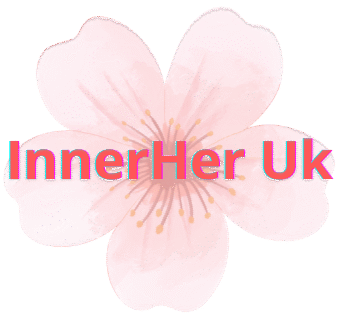As we journey through life, hair loss can become a poignant reminder of our changing bodies, especially for women over 30. This transition often brings with it a myriad of diet mistakes that can further exacerbate hair thinning. It’s heart-wrenching to feel like you’re losing a part of yourself, but understanding the connection between diet and hair health is vital. Many women struggle with fatigue, anxiety, and hormonal imbalances, all while navigating their dietary choices. You are not alone in this; numerous women share this silent struggle.
Incorporating the right nutrients not only promotes healthy hair growth but also nurtures your overall well-being. Now, imagine finding a solution that doesn’t involve heavy medications. See here how many women are resolving this without heavy meds.
By making mindful adjustments to your diet, you can reclaim not just your hair, but your confidence as well. Read on to explore practical tips and insights.
Understanding Hair Loss in Women Over 30
Hair loss can be an emotional and challenging experience for many women, especially after the age of 30. As we age, our bodies undergo various changes that can affect hair health. Understanding the reasons behind hair loss is crucial. It often relates to hormonal shifts, genetics, and lifestyle choices.
Research indicates that about 40% of women experience noticeable hair loss by age 40. Factors such as pregnancy, menopause, and health issues can lead to thinning hair. Recognizing these changes early can help in seeking solutions.
Common Dietary Mistakes to Avoid
Nutrition plays a vital role in hair health. Many women make specific dietary mistakes that contribute to hair loss:
- Ignoring Protein Intake: Hair is primarily made of protein, so a diet low in protein can lead to thinning.
- Not Eating Enough Iron: Iron deficiency is linked to hair loss. Include leafy greens, beans, and lean meats in your diet.
- Overdoing Processed Foods: Diets high in sugar and processed foods can lead to inflammation and worsen hair health.
- Neglecting Omega-3 Fatty Acids: These healthy fats nourish the hair follicles. Foods like salmon and flaxseeds are great additions.
Nutrients Essential for Healthy Hair Growth
Certain nutrients are essential for maintaining healthy hair. Focus on incorporating these into your diet:
- Biotin: This B vitamin supports hair structure. Sources include eggs, nuts, and whole grains.
- Vitamin D: Low levels of vitamin D have been linked to hair loss. Consider sunlight exposure and fortified foods.
- Zinc: Critical for hair tissue growth and repair. Include pumpkin seeds and chickpeas in your meals.
- Vitamin E: Known for its antioxidant properties, vitamin E can contribute to a healthy scalp.
The Impact of Stress on Hair Health
Stress can significantly impact hair health. When under stress, the body produces cortisol, which can lead to hair shedding. Understanding the emotional toll hair loss brings can also create a cycle of more stress.
Engaging in stress-relieving activities such as yoga, meditation, or simple breathing exercises can help manage stress levels effectively. Taking care of your mental health is just as important as caring for your hair.
Hormonal Imbalances: A Hidden Factor
Hormonal imbalances are often overlooked in discussions about hair loss. Changes in estrogen and progesterone levels, especially during menopause or even due to birth control methods, can lead to thinning hair.
Being aware of your hormonal health can pave the way for better hair care solutions. Regular check-ups with healthcare professionals can help monitor hormonal levels and manage symptoms effectively.
The Role of Hydration in Hair Care
Staying hydrated is crucial for overall health, including hair health. Dehydration can make your scalp dry and hair brittle. Aim to drink plenty of water throughout the day.
Incorporating water-rich foods such as cucumbers, oranges, and strawberries can also aid in hydration. A well-hydrated body promotes a healthy environment for hair to thrive.
Supplementing Smartly: What Works?
While a balanced diet is the best way to get essential nutrients, sometimes supplements can help fill the gaps. Popular supplements for hair health include:
- Biotin: Promotes hair strength and resilience.
- Collagen: Supports the structural integrity of hair.
- Omega-3 Fatty Acids: Helps reduce inflammation and nourish the hair.
Before starting any supplements, it’s advisable to consult with a healthcare provider to ensure they’re right for you.
Lifestyle Changes to Support Hair Growth
Making lifestyle modifications can greatly influence hair health. Consider these changes:
- Regular Exercise: Promotes blood circulation, which can nourish hair follicles.
- Avoiding Heat Treatments: Heat can damage hair; try to limit the use of hot tools.
- Gentle Hair Care: Use sulfate-free shampoos and avoid harsh treatments.
Empowering Yourself: Mindfulness and Hair Care
Practicing mindfulness can shift your perspective on hair loss. Engage in positive self-talk and focus on what you love about yourself beyond your hair. Building self-esteem can be empowering, especially during times of change.
Consider journaling your thoughts or connecting with supportive communities. You are not alone in this journey, and there are many ways to foster a positive self-image.
Inspiring Stories of Women Who Made a Change
Many women have faced similar challenges with hair loss and found their solutions. From changing their diets to embracing new hair care routines, their stories are inspirational.
Listening to their journeys can provide motivation and encouragement. They have learned to love their hair journey, imperfections included. Remember, great results can come from small consistent changes.
For those struggling with the challenges of hair loss after 30, finding your way can feel overwhelming. But it doesn’t have to be. By understanding dietary mistakes, focusing on nutrients, managing stress, and perhaps even adopting mindfulness, you can empower yourself to take control.
See how many women are addressing these issues without heavy medications and reclaiming their confidence!







